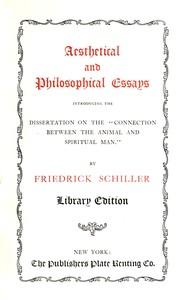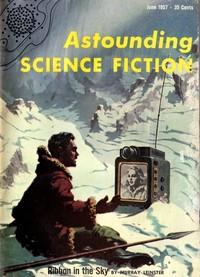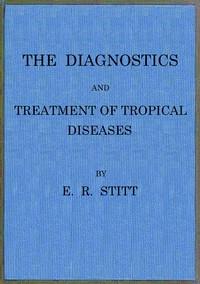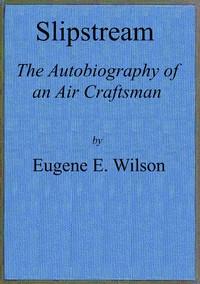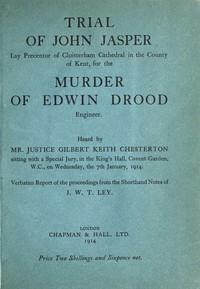|
|
Read this ebook for free! No credit card needed, absolutely nothing to pay.Words: 174479 in 28 pages
This is an ebook sharing website. You can read the uploaded ebooks for free here. No credit cards needed, nothing to pay. If you want to own a digital copy of the ebook, or want to read offline with your favorite ebook-reader, then you can choose to buy and download the ebook.

: Aesthetical and philosophical essays by Schiller Friedrich - Philosophy; Aesthetics@FreeBooksThu 08 Jun, 2023 THE FREEDOM OF THE PRESS. An important discussion has arisen since the commencement of the war, bearing upon the interests of the American Press. The Government has seen fit, at various times, through its authorities, civil and military, to suppress the circulation and even the publication of journals which, in its judgment, gave aid and comfort to the enemy, either by disloyal publications in reference to our affairs, or by encouraging and laudatory statements concerning the enemy. The various papers of the country have severally censured or commended the course of the Government in this matter, and the issue between the Press and the Authorities has been regarded as of a sufficiently serious nature to demand a convocation of editors to consider the subject; of which convention Horace Greeley was chairman. A few remarks on the nature of the liberty of the press and on its relations to the governing powers will not, therefore, at this time, be inopportune. The scope of this liberty is carefully defined by the statutes, as also the method by which its transgression is to be punished. These enactments minutely define the nature of an infringement of their provisions, and point out the various methods of procedure in order to redress private grievance or to punish public wrong, in such instances. These statutes emanate from the people, are the expression of their will, and in consonance with them the action of the executive authorities must proceed, whenever the civil law is sufficient for the execution of legal measures. But there comes a time, in the course of a nation's existence, when the usual and regular methods of its life are interrupted; when peaceful systems and civilized adaptations are forced to give place to the ruder and more peremptory modes of procedure which belong to seasons of hostile strife. The slow, methodical, oftentimes tedious contrivances of ordinary law, admirably adapted for periods of national quietude, are utterly inadequate to the stern and unforeseen contingencies of civil war. Laws which are commonly sufficient to secure justice and afford protection, are then comparatively powerless for such ends. The large measure of liberty of speech and of the press safely accorded when there is ample time to correct false doctrines and to redress grievances through common methods, is incompatible with the rigorous promptitude, energy, celerity, and unity of action necessary to the preservation of national existence in times of rebellion. If an individual be suspected of conspiring against his country, at such a time, to leave him at liberty while the usual processes of law were being undertaken, would perhaps give him opportunity for consummating his designs and delivering the republic into the hands of its enemies. If a portion of the press circulate information calculated to aid the foe in the defeat of the national armies, to endeavor to prevent this evil by the slow routine of civil law, might result in the destruction of the state. The fact that we raise armies to secure obedience commonly enforced by the ordinary civil officers is a virtual and actual acknowledgment that a new order of things has arisen for which the usual methods are insufficient, civil authority inadequate, and to contend with which powers must be exercised not before in vogue. Codes of procedure arranged for an established and harmoniously working Government cannot answer all the requirements of that Government when it is repudiated by a large body of its subjects, and the existence of the nation itself is in peril. But how is the Executive to ascertain the behest of the people? In accordance with the modes which they, as a part of their behest, indicate. But as there are two methods of fulfilling the wishes of the people, one adapted to the ordinary routine of peaceful times, and another to the more summary necessities of war, so there are two methods, calculated for these diverse national states, by which the Government must discover the will of the people. The slow, deliberate action of the ballot box and of the legislative body is amply expeditious for the purposes of undisturbed and tranquil periods. But in times of rebellion or invasion, the waiting and delay which are often essential to the prosecution of forms prescribed for undisturbed epochs are, as has been said, simply impossible. War is a period in which methods and procedures are required diametrically opposite to those which are so fruitful of good in days of peace. The lawbreaker who comes with an army at his back cannot be served with a sheriff's warrant, nor arrested by a constable. War involves unforeseen emergencies, to meet which there is no time for calling Congress together, or taking the sense of the populace by a ballot. It is full of attempted surprises, which must be guarded against on the instant, and of dangers which must be quickly avoided, but for whose guardance or avoidance the statutes make no provision. Hence arises a necessity for a mode of ascertaining the will of the people other than the slow medium of formal legislation or of balloting. The Executive of this, as of every country, resorts to this law when, in the nature of things, the statute law is inadequate. In doing this, he does not violate law; he only adopts another kind of law. A subtle, delicate law, indeed, which can neither be inscribed among the enactments, nor exactly defined, circumscribed, or expressed. When it is to be substituted for the ordinary modes of legal procedure, how far it is to be used, when its use must cease--these are questions which the people, as the sole final arbiters, must decide. As the individual in society must judge wisely when the community will sanction his use of the contingent law, the law of private military power, so to speak, in his own behalf; so must the Executive judge when the urgency of the national defence demands the exercise of the summary power in the place of more technical methods. If the public sentiment of the community sustain the individual, it is an indorsement that he acted justifiably in accordance with this exceptional law; if it do not, he is liable for an unwarranted usurpation of power. The Executive stands in the same relation to the nation. The Mohammedans relate that the road to heaven is two miles long, stretching over a fathomless abyss, the only pathway across which is narrower than a razor's edge. Delicately balanced must be the body which goes over in safety! The intangible path which the Executive must walk to meet the people's wishes on the one side, and to avoid their fears upon the other, in the national peril, is narrower than the Mahommedan's road to heaven, and cautiously bold must be the feet that safely tread it! Blessed shall that man be who succeeds in crossing. The nations shall rise up and call him blessed, and succeeding generations shall praise him. THE BROTHERS. AN ALLEGORY. DEDICATION, TO ONE WHO WILL UNDERSTAND IT: 'I love thee freely, as men strive for right; I love thee purely, us they turn from praise I love thee with the passion put to use In my old griefs, and with my childhood's faith; I love thee with a love I seemed to lose With my lost saints,--I love thee with the breath, Smiles, tears, of all my life!--and, if God choose, I shall but love thee dearer after death.' The Creator still loved and guarded the earth, although its children had departed from their early obedience. In evidence of His care, He sent, from time to time, gifted spirits among men to aid them in developing and elevating the souls so fallen from their primal innocence. These spirits He clad in sensuous bodies, that they might be prepared to enter the far country of Human Life. Earth was rapidly falling under the merciless rule of a hopeless and crushing materialism, when He determined upon sending among men, Anselm, the saint; Angelo, the tone artist; Zophiel, the poet; and Jemschid, the painter. The spirits murmured not, although they knew they were to relinquish their heaven life for that torment of perpetual struggle which the forbidden knowledge of Good and Evil has entailed upon all incarcerated in a human form. 'Brothers,' said the merciful Father, 'go, and sin not, for of all things that pass among men must a strict account be rendered. For are not their evil deeds written upon the eternally living memory of a just God? Evil lurks in the land of your exile; it may find its way into your own hearts, for you are to become wholly human, and to lose for a time the memory of your home in heaven. But even in that far country you will find the Book of Life, which I have given for the guidance and consolation of the fallen. For it is known even there that 'God is Love!'' Free books android app tbrJar TBR JAR Read Free books online gutenberg More posts by @FreeBooks
: Needler by Garrett Randall Emshwiller Ed Illustrator - Science fiction; War stories; Human-alien encounters Fiction; Weapons Fiction@FreeBooksThu 08 Jun, 2023

: The diagnostics and treatment of tropical diseases by Stitt E R Edward Rhodes - Tropical medicine@FreeBooksThu 08 Jun, 2023

: Slipstream: the autobiography of an air craftsman by Wilson Eugene E - Wilson Eugene E. 1887-1974; United States. Navy Aviation; Aircraft industry United States Biography@FreeBooksThu 08 Jun, 2023
|
Terms of Use Stock Market News! © gutenberg.org.in2025 All Rights reserved.

